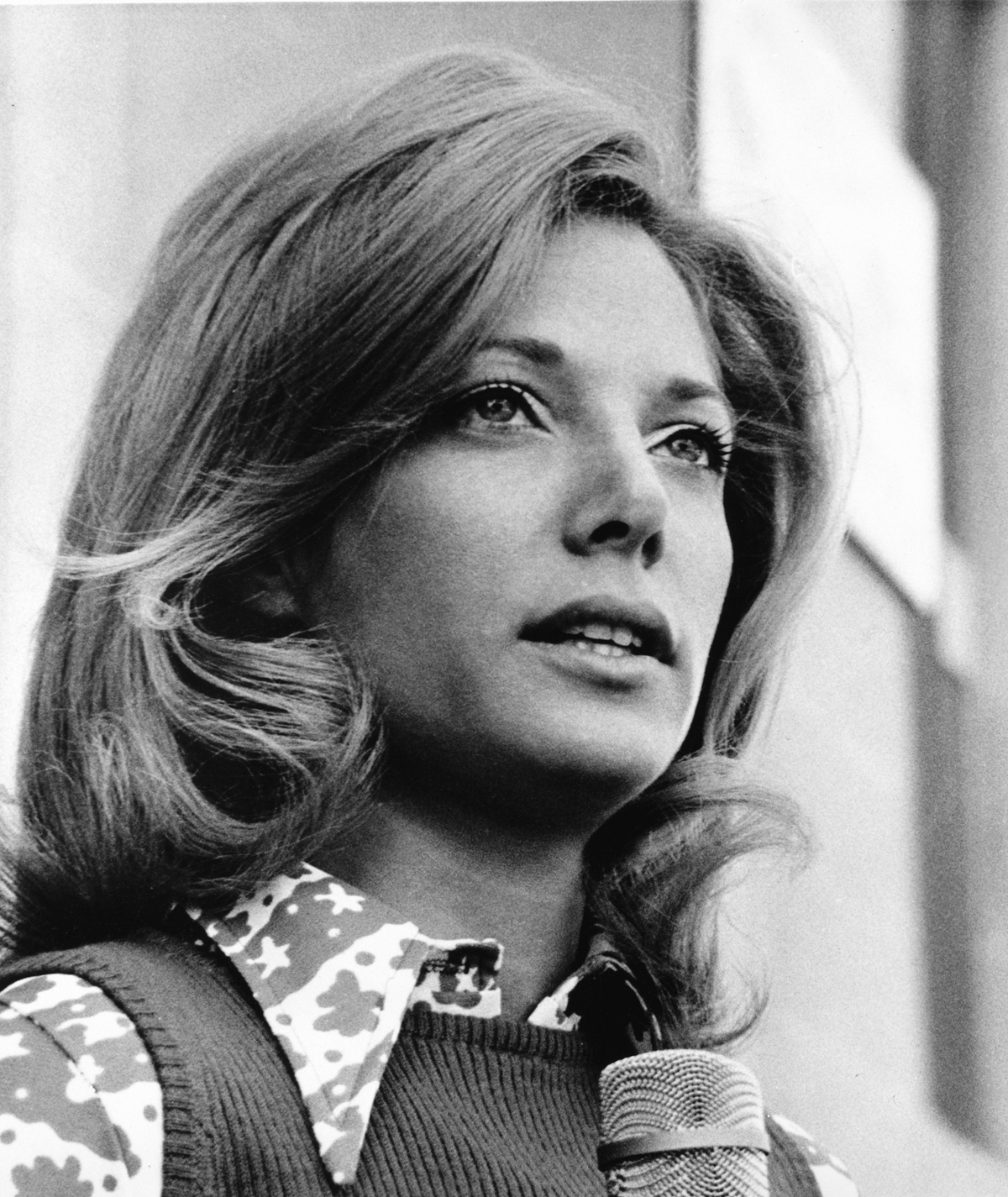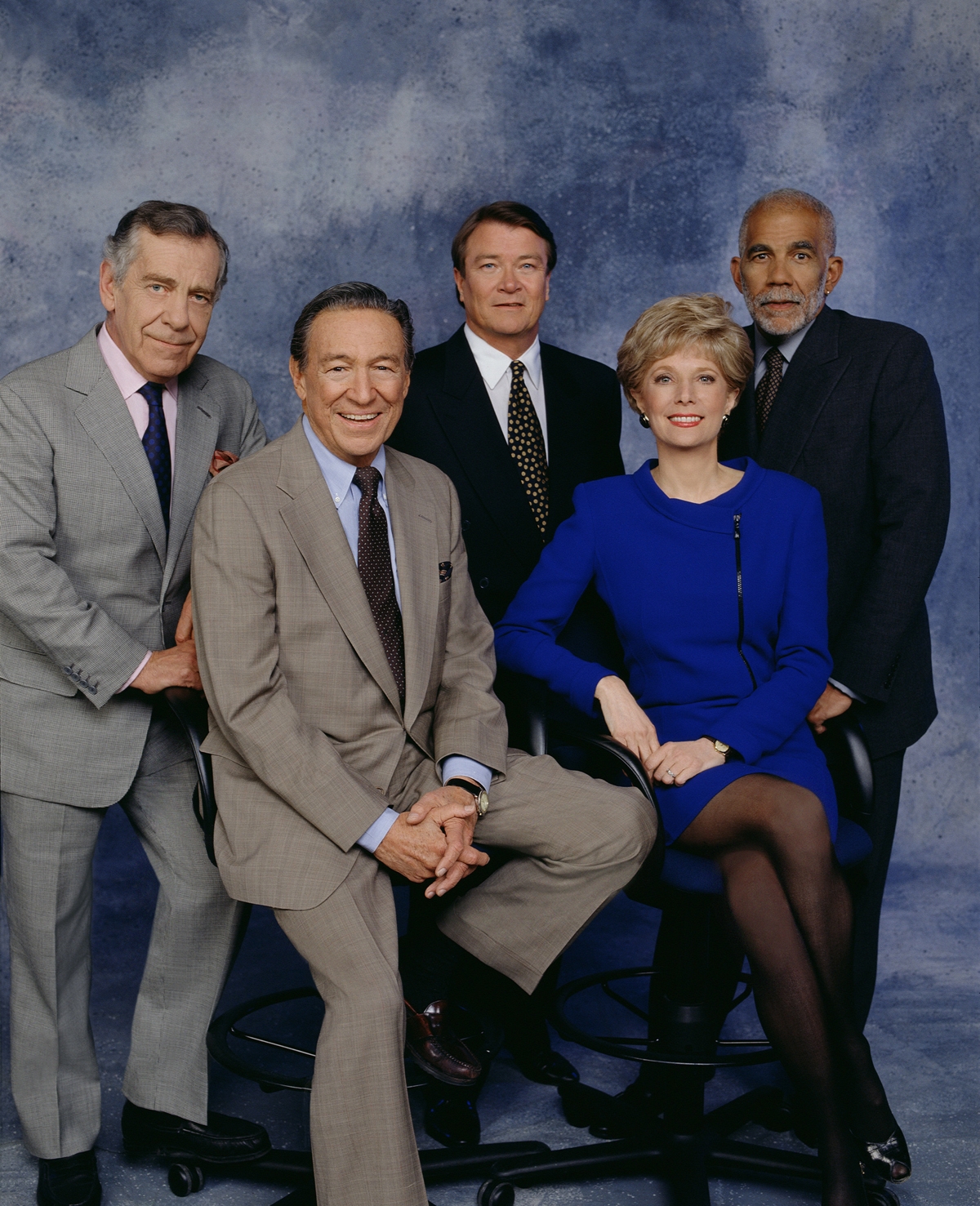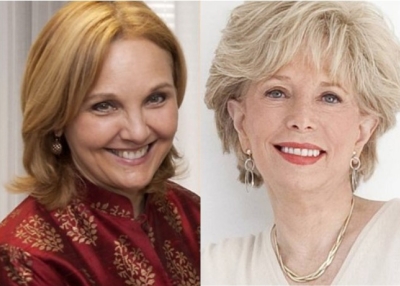A Conversation With Lesley Stahl
Lesley Stahl likes to say her life began at the age of 30 — the year she became a journalist. It happened, she said, by chance. "I asked a reporter one day what he did, and when he finished telling me I was overwhelmed by a strong urge to do what he did," she said. "Here he was going around, being nosy, asking a lot of personal, in-depth questions, and regurgitating it all. I thought, 'Gee, I could do that. I could do that and I could do it in a very serious way.'"
This epiphany spawned one of the most distinguished careers in American broadcast journalism, one that has spanned from the Watergate crisis that ended Richard Nixon's presidency to the surreal and volatile election of Donald Trump. At 60 Minutes, where she has served as a correspondent since 1991, Stahl has covered an array of domestic and international stories. She is the author of two books: Reporting Live, published in 1999, and Becoming Grandma, which came out in 2016.
Stahl recently discussed her legendary career in a wide-ranging phone conversation with Asia Society that touched on the future of journalism, her thoughts on the #metoo movement, and her memories of visiting China in 1974. The conversation has been edited and condensed for clarity.
As someone who covered Watergate extensively, what do you think about the current investigation into Russia’s role in the 2016 election?
One of the similarities between then and now is that the president, in both cases, has gone after the trust of the media and tried to discredit it. There was a distrust and dislike of the press at the beginning of Watergate, but we were redeemed when it turned out our stories had been correct after all.
Remember — the public voted overwhelmingly for President Nixon (in 1972) and people were upset that the media was saying things about the man they voted for; that they were trying to discredit him. So I see that as being similar to today, though perhaps things are more acute now.
The other similarity was the closing of ranks of the president’s party around the president. There’s a belief now that when Republicans realized what Nixon was doing, they turned on him. But the truth is that the Republicans stood by him until there were tapes with Nixon's voice on it, proving that there was obstruction of justice. Up until that point, the Republican Party, congressmen, and senators did everything they could to protect him. So that’s similar to today. Turning on Nixon came pretty late in the game.
How has the way the public and press interact with the administration changed since Watergate?
The main difference, of course, is technology — how people get their news. The idea that the president can talk directly to the public without the press as an intermediary was usually not the case back then. Now, President Trump does it every single day. That’s a major difference, how information is disseminated and the way the public procures what’s out there both from the president and the media as well as those who oppose the president.
What are your thoughts about the #metoo movement in media? Did this take you by surprise?
First of all, I think it’s long overdue. The first women who came along and went public with this were beyond brave. Up until now, if a woman came forward and made charges of sexual harassment or sexual abuse, her career would be finished. Even if she was justified and everyone agreed with her, she could not return to the career she had before. I would bet this was true close to 100 percent of the time.
Women were reluctant to speak out because we’re in a tribe. Like animals, it’s almost completely impossible to go against the tribe; to stand out, to be different from what the tribe needs or wants. When you’re in a company or on a team you don’t want to disrupt the goal. And then here you are, possibly even going after the boss. There was just a lot of peer pressure for people not to do that.
But what’s happened with the #metoo movement is that a new tribe has been formed. It makes it easier for women to speak up because this new tribe will say, “It’s ok, we’re behind you.” It’s making it more difficult for women to be fired, demoted, or shunned. It’s huge.
I’m terribly worried about a backlash, though. I worry the pendulum is going to swing too far in the other direction.

Lesley Stahl in 1973. (CBS News)
In 1974 you visited China with your father at a time when the country was still in the throes of the Cultural Revolution and Mao Zedong was still alive. What was it like?
I want to start by describing the airport. We got off the airplane — it must have been in Beijing — and the whole airport was just a bunch of long lines. Mao’s "little red book" was absolutely everywhere. We drove into the city and there were loudspeakers. We were told that they were reciting passages from the little red book all day and all night. Usually, there were women’s voices reading from the book in the streets — loudly.
The other thing that was fascinating — there was so much that was fascinating — was that we found out that Chinese society was broken into thirds. There were these 24-hour work shifts where millions of people would work from 10 to five and then five to whenever and then up to nine or 10 in the morning. They worked through the night, and the city was alive 24 hours a day. Women were shopping at night because they worked during the day. All of society was organized that way, and I found it fascinating.
Of course, the women were of enormous interest to us. They were only allowed to have one of three haircuts. I’m not kidding, there were only three haircuts they were allowed to have.
It was a business trip for my father and he was meeting a group of people. The men would come in first, and everyone would look the same. The idea, of course, is that this wasn’t a stratified society. My father was confused about who the boss was. He was selling a product to them and he didn’t know who to look at.
Over the course of our week there, he realized that the boss had a watch and no one else did. If you were higher in the ranks, you had leather shoes instead of canvas ones. There were all kinds of indications that there was a hierarchy and a clear one — higher ranking workers had glasses, for example. But the amazing thing was that everyone has clothes, food, and shelter. This was a big change from the pre-Mao period, when many people had been starving and living on the streets.
But the tradeoff was that they were constantly spied on. In the Cultural Revolution, young people — including teenagers and even adults in their 20s — were often taken away from their families and placed in work camps on the other side of the country. Parents were used to having their children taken away from them. Children were encouraged to spy on their parents. It was a world of complete control from the minute a person woke up to when they went to sleep.
It was such a brutal time. I had a conversation with a man who had two sons. He thought they would go to medical school and become doctors. They were taken away from him and flung across the country. He had no contact with them and when he told me about this he just burst into tears.

Correspondents from 60 Minutes pose in 1996. From left to right: Morley Safer, Mike Wallace, Steve Kroft, Lesley Stahl, and Ed Bradley. (CBS News)
How did this experience inform your subsequent reporting from the country?
I’ve been back to China several times. I went when President Reagan went (in 1984). The changes were so rapid and would have given anyone a cultural shock. Each time I went back — say, every 10 years or so — the leap in urbanization, in having the comforts of life was dramatic and head-spinning.
There had been a relaxation and an honest feeling among people we reported on that they were headed toward a real democracy. And then the next time there had been a clampdown and people were afraid to talk. There’s been a back and forth — an instability — with human and civil rights.
This is a period of great polarization and a lot of worry in the United States. Are you optimistic about the future?
In some ways yes — but in a lot of ways no. I’m not an optimist about the future of journalism, for example. I’m very worried about the success of President Trump’s campaign to discredit the media. It seems to have taken hold — every poll has our credibility as low as it can get. I worry deeply about how the public is going to make judgments about our leadership if they don’t believe the press and the information they get comes directly from the administration’s public relations people.
I worry about our system of government being able to survive. We have a constitution that we all cherish but it hasn’t changed much since our founders wrote it. It hasn’t made any adjustments to the enormous changes in technology. The way we vote is archaic and it doesn’t reflect the real will of the people.
I worry about the effect of technology on my grandchildren and their generation, and how young people get most of their information online and through addictive cell phones. I worry about how my grandchildren’s minds are being changed by how they learn, which is through screens. And, I worry about the environment.
The more I talk to you the more I realize that I’m not an optimist after all!
But I do think that on the other hand, we have a system that has always found a way to cleanse itself and regenerate. I do believe in our system and think we can reboot. We are capable of it, it’s within our system, within our country-wide DNA. I think it’s possible to become idealistic again with the right leadership, to find our patriotism again because I think that’s been jolted a little.
I hope my grandchildren love this country. I want them to. But there are a lot of problems.
Related: Lesley Stahl on Interviewing Donald Trump: 'You Better Do a Good Story!'

